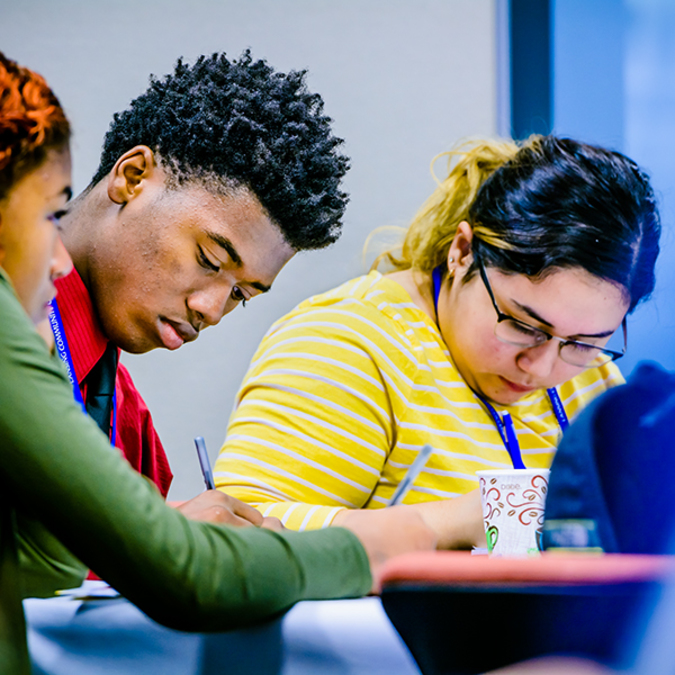For around $240, a student can own the textbook “Chemistry: The Central Science Plus Mastering Chemistry,” required for students enrolled in Chemistry 151 at Michigan State University.
If Lansing Community College had its way, that textbook would be free.
That’s because LCC is a leader in Open Educational Resources, a movement challenging the overwhelming burden college textbook costs place on students. OER are educational materials that either are in the public domain or have been assigned open licenses.
In both cases, every person in the world enjoys free access to OER and free permission to retain, reuse, revise, remix and redistribute these materials, increasing for all the availability and accessibility of education.
LCC leads Michigan in making OER available to students. The project started with five faculty using OER in five courses in fall 2015. As of Sept. 18, 2017, LCC has saved its students $1,081,700 in textbook costs through OER, and 74 faculty teaching in 27 courses representing 150 sections use OER at LCC. In addition, LCC hosted the Second Open Educational Resources Summit on Feb. 24, 2017 where scholars and academic professionals from across Michigan discussed open education, open licensing, and how to promote wider adoption, awareness and use of OER.
“Ours is a grassroots initiative. We aim to ease the financial burden placed on our students by the high cost of textbooks, provide access to educational materials from the first day of class and enable our faculty to innovate,” said LCC Librarian and open resource project manager Regina Gong. “Our faculty adoption numbers keep increasing each semester, allowing us to impact more students with every passing year.”
LCC’s OER course offerings are listed here.

In addition to saving students money, OER liberates faculty from the confines of a textbook-centered course plan. Professors and instructors are free to create course materials that present essential educational concepts with the most relevant, modern media and materials available.
OER allows both instructors and students to engage with limitless academic sources, which both increases the quality of instruction and the engaged interests of students.
LCC student reactions to the OER initiative have been overwhelmingly positive. A student responding to a collegewide OER survey said, “I’m so thankful we didn’t have to buy a textbook for this class. The online book was great and considering textbooks break the bank, I don’t see a point to purchasing them for every class. I think this is a really great option for students. Everybody should have access to education and this really helps level that playing field.”
LCC established the OER Pilot Awards Program as an incentive for faculty to convert courses currently using traditional textbooks to OER material. In addition to supporting adoption of OER by individual teaching faculty, the award especially encourages scaling of OER adoptions across all sections of high-enrollment courses in order to affect a significant number of students..
According to CollegeBoard.org, in 2017, the average student will spend between $1,230 and $1,390 on supplies and textbooks listed in their course requirements. Between 2002 and 2013, the cost of college textbooks rose 82 percent, an increase based entirely on the captive necessities of college students irrespective of inflation.
LCC’s commitment to OER is part of a broader national movement. A bipartisan group of congressional representatives and senators has introduced legislation in Congress that would directly address reducing education costs through OER. The bill, known as the Affordable College Textbook Act, would establish competitive grants through the U.S. Department of Education for colleges and universities to develop and implement OER materials.


